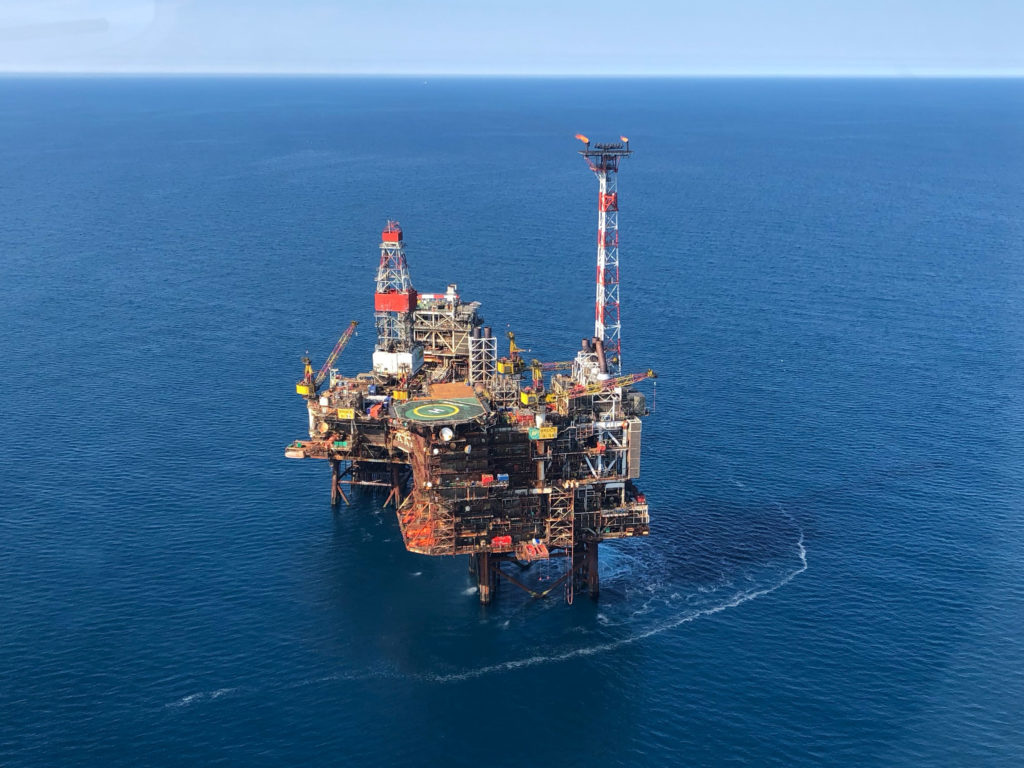
Oil and gas producer Serica Energy is looking at “a couple of serious opportunities” to expand its UK North Sea portfolio and build on recent deals, its boss said.
Chief executive Mitch Flegg said he was “spending a lot of time on the next transaction”, which would fill Serica’s “hopper” with more exploration, appraisal and production options offshore UK.
Speaking after Serica published its first-half results, Mr Flegg said the firm had been “transformed” into one of the basin’s leading operators through last year’s purchase of a package of assets.
Serica wrapped up a hard-won deal to buy interests in the Bruce, Keith and Rhum (BKR) fields from BP in November 2018, a year after the transaction was first announced.
Completion was held up by Serica’s ultimately successful efforts to obtain a US sanctions waiver for the Rhum field, which is part owned by Iran.
The purchase of additional stakes in the Bruce and Keith fields from Total, BHP Billiton and Marubeni hinged on the BP deal completing.
When stacked together, the four acquisitions gave London-headquartered Serica 98% of Bruce, 100% of Keith and 50% of Rhum.
Serica took on more than 100 employees from BP and opened an office in Hill of Rubislaw, Aberdeen.
Before the BKR transaction, Serica’s only production came from a non-operated stake in the Erskine field, which has been beset by reliability issues in recent years.
Production from BKR helped Serica chalk up pre-tax profits of £52 million in the first half of 2019, a vast improvement on a deficit of £8m a year ago, while revenues skyrocketed to £146m from £3.3m.
Output net to Serica totalled 31,000 barrels of oil equivalent (boe) per day during the reporting period, up from 26,000 boe per day for 2018.
The structuring of the deals allowed Serica to prosper from BKR production from January 1, 2018, though the acquisitions didn’t close until later in the year.
Mr Flegg said he was “incredibly pleased” that the company was squeezing more production than BP from the same assets.
He also described a reduction in operating costs by more than 30% to $12.30 per barrel as “spectacular” and a sign that the new employees had bedded in well.
Mr Flegg claimed Serica’s balance sheet was “amongst the strongest” in its peer group, enabling the firm to go after “further value-accretive opportunities”.
Mr Flegg also said he was “comfortable” that US authorities would renew the licence which removes restriction on production from Rhum. The current waiver expires at the end of October.
The firm has decided to defer work on the third production well on Rhum – R3 – from early 2020, until late 2020 or early 2021. The well requires intervention work before it can be brought on stream.
The Columbus project – which received regulatory approval in October 2018 – remains on schedule for start-up in 2021.
It is being developed as a single well connected to a planned pipeline between the Arran field and Shell’s Shearwater platform.
Serica’s board is still mulling when to start paying out dividends to shareholders.
The firm’s shares dropped 4.15% to £1.29 in London as of 2pm yesterday.
Recommended for you

